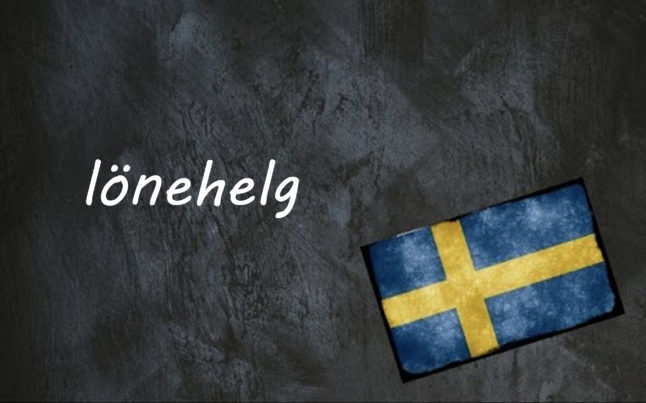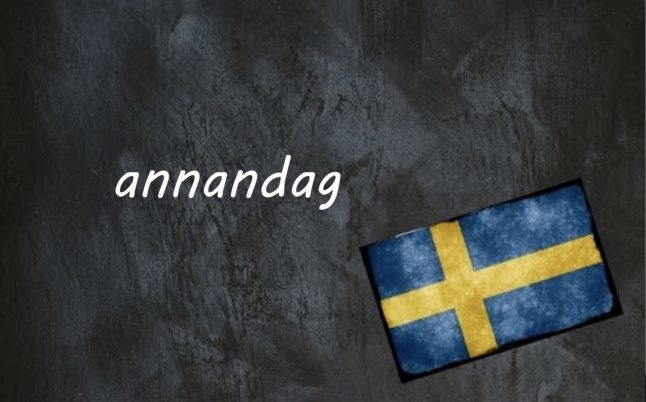Lönehelg is a compound word comprised of the word lön (salary) and helg (weekend). Its English equivalent would be “payday weekend”, the weekend after Swedish workers receive their salary.
In Sweden, unlike in some other countries, salary is paid monthly, with payments always reaching workers’ accounts on the 25th of the month (or the closest working day, if the 25th falls on a weekend or public holiday). This month, payday for most workers is March 24th.
This is the case for the vast majority of Swedish employees – meaning, as a general rule, everyone on Sweden gets paid on the same day.
This means that the first weekend after the 25th is always a lönehelg.
- Don’t miss any of our Swedish words and expressions of the day by downloading our new app (available on Apple and Android) and then selecting the Swedish Word of the Day in your Notification options via the User button
You might notice the number of people in bars and restaurants gradually declining throughout the month, as people’s funds dwindle before payday, only for the city to be buzzing on the 25th after everyone has been paid.
In a similar vein, bars, clubs and restaurants are always more busy on a lönehelg, so it might be a good idea to book if you’re planning on meeting up with some friends just after payday.
This is also the period of the month where restaurants and shops earn the most money, when consumers finally splurge on the items they’ve decided they need but haven’t been able to afford since last payday.
Bizarrely, a 2014 study from the Institute for Labour Market and Education Policy Evaluation (IFAU) showed that more people die on paydays in Sweden than on other days – researchers saw a worrying 23 percent increase in deaths on payday, with deaths due to strokes or heart problems increasing by a whopping 67 percent.
There was no increase in alcohol-related deaths on payday though, so no need to worry if you do plan to indulge in a celebratory payday beer with your friends this weekend.
Example sentences:
“Ska vi ute och ta några bärs på fredag? Det är lönehelg!”
“Do you want to go out and get a few drinks on Friday? It’s payday weekend!”
“Åh, jag älskar den klänningen men tror inte jag har råd just nu…” “Köp den nästa vecka då, det är lönehelg i helgen!”
“Ah, I love that dress but I’m not sure I can afford it right now…” “Buy it next week then, it’s payday weekend this weekend!”
Villa, Volvo, Vovve: The Local’s Word Guide to Swedish Life, written by The Local’s journalists, is available to order. Head to lysforlag.com/vvv to read more about it. It is also possible to buy your copy from Amazon US, Amazon UK, Bokus or Adlibris.



 Please whitelist us to continue reading.
Please whitelist us to continue reading.
This surprised me. I work for Region Dalarna and I don’t get paid until the 27th. Is this a Dalarna thing?
Hi!
It’s not a Dalarna thing but it is a public sector thing – a lot of regional and municipal workers are paid a couple of days later. Supposedly it used to be because the banks couldn’t handle that many transactions going through all on one day so they had to space them out on different days, but now it’s stuck.
You could get paid as late as the 28th in some months, if the 27th falls on a Sunday, as it’s paid on the closest working day.
Hope that clears it up!